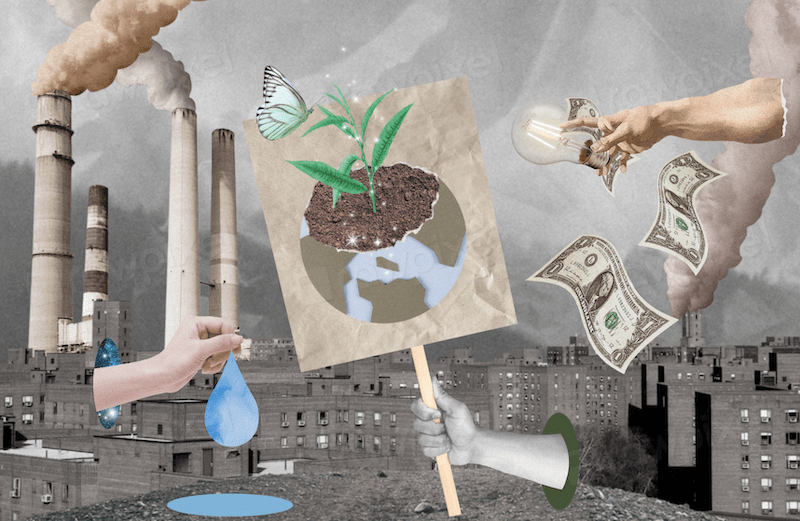Unleash Capitalism’s Creativity on Climate Change
Globe and Mail
“Greenland’s Ice on the Scales.” The headline caps an article—appearing in a recent issue of the scientific journal Nature—that reports on the state of Greenland’s ice sheet. About the size of Mexico and in some places about three kilometers thick, this ice sheet is the world’s second largest after Antarctica’s.
For years, two US-German satellites have measured Earth’s gravity field as they’ve passed over Greenland. Scientists have carefully interpreted the data to track changes in Greenland’s massive body of ice. And what they’ve found supports conclusions of other studies—using very different methodologies—that the ice sheet is now disappearing at the astonishing rate of more than 200 cubic kilometers a year. That’s equivalent to 200 times the amount of water that Los Angeles will consume this year.
Some of the ice loss comes directly from increased melting of the ice sheet: parts of Greenland have warmed almost 3 degrees Celsius in the past twenty years. But more comes from the movement of a dozen glaciers that flow from Greenland’s highlands to the sea. Their speed of movement has doubled just since the year 2000—in some cases, to more than twelve kilometers a year—and their huge tongues extending into the sea have disintegrated into tens of thousands of icebergs.
Greenland is far away and doesn’t matter much in the everyday lives of Canadians. But the drumbeat of news about the effects of global warming is quickening—and getting steadily closer to home. Earlier this week, the CBC reported that every pine tree in Kamloops is either dead or dying because of an infestation of mountain pine beetles that began just a couple of months ago. In the next two years, the city will lose 75 percent of its trees.
Bark beetle infestations are chewing their way through pine forests from Alaska and British Columbia to Arizona. These infestations are likely an early sign of climate change, because warmer temperatures have extended beetles’ life spans and geographic range. Alberta is now fighting what’s almost certainly a losing battle to prevent the beetles from crossing the Rockies to invade Canada’s vast boreal forest that extends to Labrador.
Most Canadians don’t read Nature, but many do pay attention to the CBC and other media outlets that report on recent climate science. And everyone notices when the forests around them die in a matter of weeks. Polls show that Canadians are connecting the dots. But the Conservatives’ environmental plan announced this week shows that our federal government isn’t.
The plan was thoroughly analyzed in these pages and elsewhere yesterday. The consensus, and not just among environmentalists, is that it’s a hodgepodge of mismatched policies—dealing with everything from dishwashers to power plants—that’s best characterized as an exercise in obfuscation and delay. It extends the Tories’ deliberate effort to conflate the problems of urban air pollution and global warming, as if Canadians don’t now know the difference. And it puts off any tough decisions or economic pain for years, and in some cases for decades.
Why have the Tories chosen such an approach? Because global warming is a nightmare issue for conservatives. Our greenhouse-gas emissions come mainly from burning fossil fuels, and fossil fuels are the industrial world’s main source of high-quality energy. So policies that really curtail emissions will affect practically every activity in the world’s rich countries. They’ll not only change each and every person’s life in these countries, but they’ll also challenge the political and economic power of many entrenched interest groups, from tar-sands oil producers and car manufactures to lobbyists for the coal-mining industry. Even market-based strategies for dealing with carbon emissions (like systems for trading carbon-emission quotas) will demand—if they’re properly implemented—reams of government regulation and elaborate institutions that will intrude into every niche of business.
Global warming, in other words, raises colossal difficulties for laissez-faire versions of capitalism. It’s what political scientists call a “collective action problem.” Most people and companies, if left to their own devices, will choose to let others bear the costs of doing something about carbon emissions. Government action is essential to stop this “free-riding.” But anything that involves greater government intervention, especially in the marketplace, makes conservatives see red.
It doesn’t have to be this way. There’s a rich tradition of conservative environmentalism—stretching back to President Teddy Roosevelt’s actions to enlarge America’s system of federal parks—that emphasizes people’s responsibilities as stewards of nature. More important, from the point of view of conservative economic policy, the powers of market capitalism are just waiting to be unleashed to address global warming.
Yes, enormous government intervention will be needed to create the necessary incentives and markets. But all markets—always—exist within an elaborate framework of laws, regulations, and institutions that are almost all supplied by government.
If we unleash Canada’s capitalist creativity, we could be an international leader in a suite of technologies urgently needed in a warming world that will depend on fossil fuels for many decades. These include technologies for the clean combustion of coal, for storing carbon dioxide underground, and for using hydrogen as a transportation fuel. We could make staggering amounts of money selling these technologies around the world. Instead, once again, we’re at risk of falling behind places like California—a mighty engine of invention that is rapidly focusing its creative energies on solving global warming.
The Tories are missing a huge opportunity. We need a federal government with a sense of urgency about the problem, the guts to act, and the common-sense recognition that government must play a major role in Canada’s response. Instead, right now, we have a federal government with its head stuck in the tar sands.

Topics
Climate Change
Energy
Environmental Stress and Conflict
